Working with the type of brilliant minds we do, we’ve learned, most creative business owners have some trepidation over their finances. There’s a lot they’re unsure about and ultimately it results in them taking a step back from their finances. It means creatives are often undercharging, have a “keep their fingers crossed” attitude to cashflow and often seek expert help a little later than they really should.
That’s why our founder Gillian talked to Saskia, host of A Smaller Life podcast about being brave and engaged with your finances.
Now, if you don’t know what certain accounting roles do exactly, you’re not the only one. It’s something we happily explain to our clients (it turns out it’s quite common to be unsure of what we do in this industry).
It’s time to break down what different roles do, why your finances are exciting and what can happen when you get properly involved in all aspects of your creative business.
Here’s the difference between an accountant and a bookkeeper.
A bookkeeper keeps track of every penny going in and out of your business. They oversee all of the payments and income, making sure your books accurately reflect your business’s cash-flow e.g. the movement of money.
It’s not really a question of who’s more integral to your business finances, rather the bookkeeper and accountant work in tandem, hand in hand. Clean, solid books are crucial for an accountant to execute their work properly and that’s down to an excellent bookkeeper.
Meanwhile, it’s the accountant who will take that data, apply their expertise and work out a route to get you to your turnover, profit and growth goals. They’ll also make sure you’re fully tax compliant and only pay the tax you need to.
Ultimately, they’re both deeply involved in your numbers and depending on who you hire, they can have a transformative impact on any business.
Find one of the good ones.
When you first start out, owners can manage their own books. As long as you’re vigilant and accurate with your cash flow management, you can oversee most of it yourself in the very early days. However, it really does boil down to the sooner the better when it comes to hiring a really good bookkeeper.
A skilled bookkeeper will be:
- Easily contactable
- Consistent with their communication
- Have great attention to detail
- Proactive e.g. query and chase any outstanding transactions
- Tracking due and overdue income
- Reconciling your accounts every week
Notwithstanding the time and mental energy it will save, the sooner you know every penny is being tracked and categorised correctly the sooner you’ll have powerful data at your fingertips.
A good bookkeeper will give you peace of mind and provide you with information that will shape the growth of your business.
Choose an accountant who is experienced in your line of work..
Once you’ve hired a brilliant bookkeeper, never let them go (and you won’t want to)! They’ll be able to indicate when it’s time to hire an accountant but from a functional point of view, the latest we’d advise you start working with an accountant is when you’re VAT registered or become a limited company (which ever happens soonest)..
Now, a lot of business owners don’t realise there’s industry experts when it comes to accounting. It’s not one-size-fits-all and whatsmore, you can choose them based on their values too.
In short, a good accountant will:
- Have experience in your industry
- Ask insightful questions into your business and your goals for the future
- Check to see you’re a right fit for them e.g. they don’t just take you on, no questions asked
- Have similar values and attitudes to you. They’ll stand for something.
- Be a straight-shooter (they’re about tax compliance, not questionable loopholes)
From the grassroots to selling, a good accountant will provide you with different help for different stages of your business. And with that in mind, you could be kicking off an awesome, long-term partnership when it is time to hire one.
Your finances are part of the amazing world you’ve built. It’s even more exciting when you understand them better.
As accountants to creatives, the most important message we tell our prospects is there’s bookkeepers and accountants out there who love what they do. Those people will genuinely listen to your needs and use their skills to catapult you towards your goals for the future. They need an honest bookkeeper and accountant who’s itching to work for them, is excited by their goals and has the expertise to get them there.
There’s freedom and fun to be found in fearlessly engaging with your creative business finances.
Whether you’re a creative or not, a business owner just won’t know everything when it comes to the finances (that’s why we’ve spent years in training). It’s our job to advise you on how much you can do yourself and then take on the parts you really shouldn’t be.
Whatsmore, when you do hire the right people, you have access to the most useful, expert counsel. Your finance team aren’t just there to make sure you’re ticking boxes, they’re there to make sure you thrive and as a creative business, it’s imperative you do.
That’s what Gillian, our founder, talks about in the Smaller Life podcast (again, you can listen to it here). It’s a cracker.
If you’re a creative business owner and wary about your finances, take a baby-step with us and fill out our form. At the very least, we’ll have a cool little chat about your business and what accounting can do for you when you’re ready.
At the very most? It’s going to kick off a really exciting working relationship.

